XR TECHNOLOGY FOR SMALL BUSINESSES
Have a Voice in the Market
Small business perspectives and needs are critical to the development of XR technologies
Small businesses can use XR technology to accelerate their business goals—and it’s pivotal when they have opportunities to shape and influence the development of XR technology so that it is beneficial for them.
XR's transformative potential extends far beyond employee training and development, opening up innovative avenues for enhancing a small business's bottom line. Dig into the following case studies.
Innovative Ideas for the Denver International Airport
Small businesses have played a pivotal and ongoing role in the physical evolution of the Denver International Airport, in everything from modernizing electrical systems to enhancing overall customer experience. In JFF’s recent Innovation Challenge in Denver, we posed this question to competitors: How can small businesses that support physical changes in the airport—think construction contractors, businesses that specialize in streamlining passenger movement through the airport, and businesses that clean the airport and help it stay functional—leverage XR to improve their business and, ultimately, the airport’s?
Proposed AR Solution
- As competitor Nosa Iyare identified, international travelers coming to the United States for the first time can find it difficult to navigate an airport, making the experience overwhelming and unwelcoming. In many cases, international travelers struggle to order food or find their destination due to the language barrier.
- Resolution: Iyare proposed an AR mobile app designed to ease navigation of unfamiliar airports by helping users, particularly international travelers, translate signage, find eateries and restrooms, and go through customs. The solution has the potential to support millions of travelers and generate increased revenue for small businesses by helping to bridge the knowledge gap and decrease the stress of travelers.
Custom Solutions for Local Small Businesses in Dallas
Small businesses that offer products that are logistically complicated to view in person face unique challenges in helping customers understand their product offerings, whether they have inventories that are too vast or products too large to be portable. In JFF’s recent Innovation Challenge in Dallas, we posed this question to competitors: How can small businesses with complex inventory challenges use VR to improve their business by showcasing the service they provide and train employees to immerse customers in their business despite the complex inventory?
Proposed VR Solution
- As competitor Isabelle Russek identified, clients looking to purchase custom art designs (e.g., sculptures, invitations) experience decision paralysis due to an overwhelming array of choices, resulting in uncertainty about where to begin. Also, small businesses that offer these designs encounter difficulties with excessive customization, hindering the use of templates for future projects and unnecessarily driving up costs.
- Resolution: As Russek proposed, integrating a VR experience into clients’ decision-making streamlines the process, leading to more efficient choices and heightened confidence in design selections. The solution allows clients to explore design options more effectively and collaborate closely with the design team, ensuring a tailored approach that aligns with their individual preferences and vision.
Unique Supports for the Retail and Food and Beverage Industry
Washington, DC, food and beverage businesses in certain areas are struggling to meet revenue needs, with brick-and-mortar businesses having to change the way they’ve traditionally operated. In JFF’s recent Innovation Challenge in DC, we posed this question to competitors: How can XR technology be used to improve these businesses by driving new customers to their locations, encouraging repeat customers, strengthening community relations, and enhancing operations?
Proposed AR Solution
- As competitor Joseph Cathey identified, small businesses in the retail, food, and beverage industries need ways to bring in new customers and drive deeper engagement with existing customers. New customers often can’t visualize the experience they will get before entering the physical establishment. Existing customers need powerful reminders of the good times they had there and why they should go back.
- Resolution: Cathey proposed a location-based AR game called Destination Pass, which fosters community engagement and interaction with local businesses and attractions. This immersive game encourages players to explore various points of interest, including categories such as history and culture, retail, recreation, arts and entertainment, food and beverages, and community activities. The platform features a dynamic short-form video feed that facilitates hyperlocal discovery of creators, businesses, attractions, and events, enhancing the overall user experience. By incorporating existing marketing materials, businesses can effectively reach new customers, reducing customer acquisition costs. With support for exclusive promotions and giveaways, the solution establishes a city-wide rewards system that incentivizes interaction with businesses and promotes community growth.
Small businesses have a critical voice in the development of XR. Employees and business owners alike not only need to be considered as core users and customers as AR and VR solutions are being developed, but they should also be brought into the creative process to influence design choices.
JFF’s XR Innovation Challenges
Designing solutions for small business needs
One way JFF brought different community voices together was through our Innovation Challenges. We identified a local community need directly from the small businesses in that area and proposed a challenge for competitors around that need. This is a great way to unify and elevate the voices of small businesses and put their needs front and center.
The Innovation Challenges took different forms.
- In Dallas, competitors were able to act as XR consultants and design solutions specifically for two local businesses. Both businesses had complex inventory, and their needs were very different, but participants were able to cocreate solutions by getting intimately familiar with their challenges and using their feedback to iterate.
- In Washington, DC, the problem statement proposed was less customized, focusing on the food and beverage industry as a whole. We sourced inspiration for the problem statement from two local restaurants and invited them to act as subject matter experts during the design process as a resource for competitors. In both instances, we designed the challenges with the priority being small business involvement.
However, you might be wondering how each individual small business can find the time, capacity, resources, and appropriate channels to contribute to conversations around XR development.
This is where local communities come into play. Intermediary or support organizations for both small businesses and the technology world can come together to lift up the voices of small businesses and ultimately contribute to better XR products. Group effort makes this easier.
-
Build Understanding in Order to AdvocateBegin by generating awareness and excitement around XR technologies. Understand and then articulate clearly how XR can support local businesses and alleviate regional challenges. This approach allows people who are less familiar with the technology to understand how it can be of value to the community.
-
Bring Diverse Voices to the TableIt is important to assess who is already at the table, who could be, who should be, and who may not even know the table exists. Bringing together various stakeholders in the community to identify problems and create solutions increases awareness and expands ownership of the technology itself. The more people understand and have a voice around emerging technologies, the better the design and integration.
-
Decide the Vehicle to InfluenceIntermediaries and small business support organizations can act as rallying bodies. Individual events can also help raise awareness. Leaders within the community, from educational authorities to business executives to policymakers, can serve as champions and inspire others.
If you want more information or are interested in running a similar challenge in your region, contact us: www.jff.org/contact-us.


